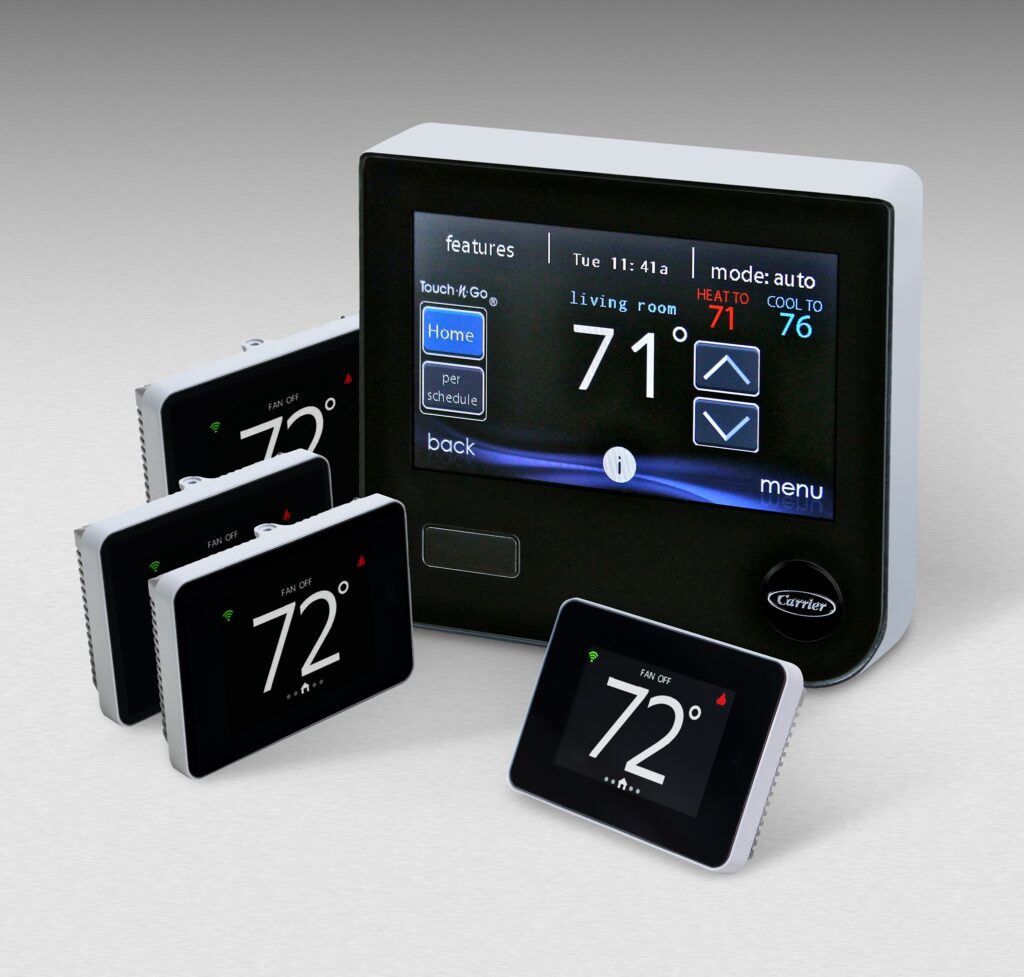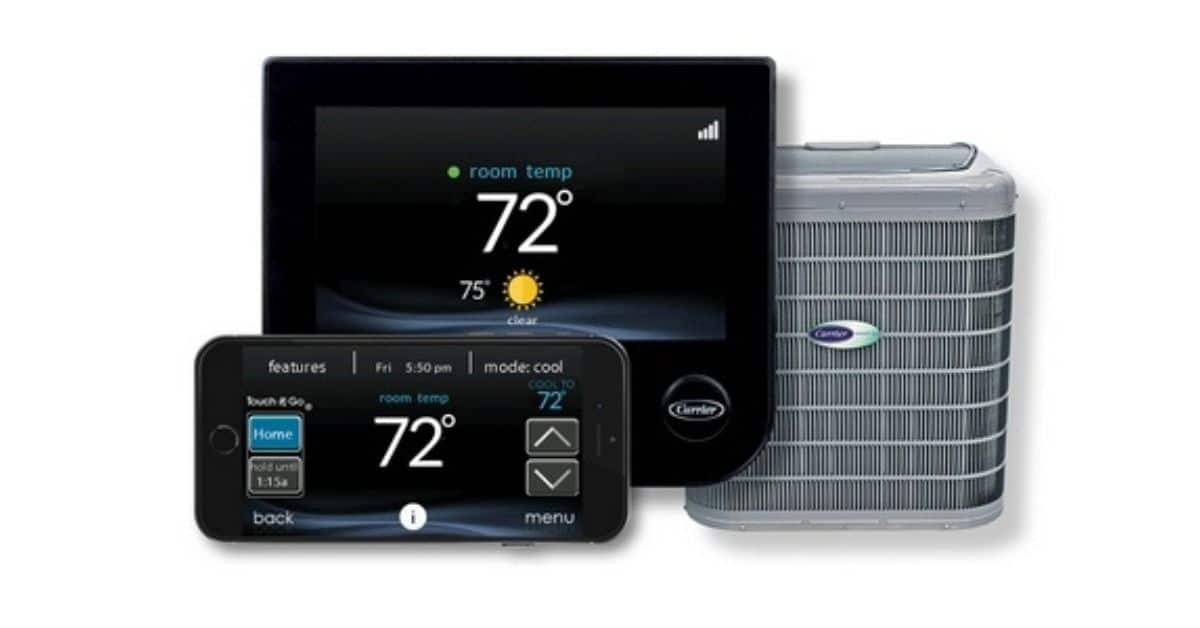The innovation of forced air zoning systems stands out in the search for a more comfortable and efficient house. Homeowners can segment their living areas into independently controlled zones for temperature, thus moving away from the universal approach in conventional HVAC systems. This strategy customizes ease according to individual preferences and necessities while drastically reducing energy waste.
Let’s explore how these systems can transform your living environment and bring unparalleled convenience to your residence.
What Is a Forced Air Zoning System?
A forced air zoning system is an advanced home warming and cooling approach. It offers precise temperature control for different zones within a residence. Dividing a home into segments based on specific heating and cooling needs boosts relaxation and productivity. This contrasts with traditional systems that treat a home as a single entity, often resulting in inconsistent ambient conditions in various rooms.
Key components are at the core of a forced air zoning system: thermostats, a control panel, and dampers. Each area is equipped with its own thermal regulator. These devices monitor humidity and communicate with the central control panel. The screen acts as the system’s brain, interpreting information from the thermostats and guiding operations.
Dampers are essential for managing airflow. They are positioned within the ductwork. Depending on the control panel’s commands, dampers adjust their position in response to each region’s thermostat settings. When a zone reaches the desired temperature, the damping mechanisms close. This restricts airflow to that area and diverts air to where it’s needed, resulting in a comfortable balance throughout the space.
The Benefits of Forced Air Zoning Systems
Multi-zone HVAC systems transform home ambiance and effectiveness, offering customized temperature management for different areas within a home. Here’s how these appliances can improve your living experience and provide significant power savings:
Improved Comfort
Advancements in technology enable the creation of customizable temperature zones throughout residences. This innovation allows occupants to modify the climate in different areas according to individual preferences, ensuring optimal comfort for everyone. The approach also tackles the common issue of uneven conditioning or chilling, effectively eliminating hot and cold spots.
Doing so ensures a uniformly pleasant environment throughout the home. Such improvements raise the satisfaction level, as air conditioning or heat can be directed precisely where needed, avoiding waste.
Increased Energy Efficiency
Zoning systems provide separate temperature controls for different areas or zones within a building. This design optimizes heating, ventilation, and air conditioning (HVAC) system operations. With a focus on targeted climate control, HVAC units no longer need to expend extra resources to regulate temperatures in unoccupied spaces. Such focused control leads to a significant decrease in electrical consumption.
As a result, property owners often notice a substantial drop in their utility expenses. By utilizing zoning systems, individuals can maintain perfect comfort levels in their spaces while reducing their environmental impact through lower energy use.
Extended HVAC System Lifespan
By reducing the system’s overall workload, zoning ensures that heating, ventilation, and air conditioning units operate under less strain. The diminished workload directly contributes to the extended lifespan of the HVAC components. When zones are individually regulated, the
demand on the central system decreases, allowing it to function more efficiently and with less wear over time.
In addition, the reduced strain on the system diminishes the necessity for repairs and maintenance. HVAC units that serve zoned areas typically encounter fewer operational issues since they are not continuously running at total capacity. Its selective operation preserves the system’s condition and leads to fewer interruptions for servicing and replacement.

Ideal Homes for Zoning Systems
Zoning regulations improve convenience and productivity in homes, particularly for specific residences. Multi-story homes, for instance, benefit greatly from customized air distribution systems. Since heat rises, temperatures between floors can vary significantly. Climate zoning solutions enable residents to set and maintain the desired temperature for each level, ensuring overall comfort.
Large homes with different occupancy rates also reap substantial advantages. In homes where some areas are rarely used, it’s not cost-effective to heat or cool them as much as the areas in constant use. Air distribution systems allow for adjusting temperature controls for various sections, leading to energy conservation and lower utility bills.
Also, homes with unique architectural features, like expansive windows, towering ceilings, or loft spaces, can use zoning systems effectively. Such features may cause an uneven distribution of
heating or cooling. Through segmented temperature control, homeowners can address these variations, maintaining comfort in every part of the home, irrespective of its distinctive traits.
Considerations When Installing HVAC Solutions
While the positive aspects of zoned HVAC systems are undeniable, careful planning is essential to maximizing their effectiveness. Let’s examine the key factors to ensure a smooth and effective implementation:
Professional Installation
The complexity of integrating multiple zones requires a level of expertise that only certified professionals possess. They thoroughly understand the details of setting up such a system to operate effectively. Qualified technicians also ensure adherence to industry standards, which can significantly impact the system’s longevity and reliability. Their experience enables them to anticipate potential challenges and implement solutions that prevent future issues.
Moreover, professional installation often comes with warranties that give homeowners peace of mind. The warranty covers repair or replacement costs if any system component fails due to installation errors. This safeguards the homeowner’s monetary stake and guarantees that the system functions optimally, delivering the intended comfort improvements.
Cost Factors and Return on Investment
While the initial costs appear high, the energy bill savings over time can greatly compensate for these expenses. Zoning systems enable precise control over the temperature in various areas or zones within a building. This precision leads to more efficient resource usage, which homeowners can see as decreased operational costs.
Additionally, the systems boost indoor air quality, promoting a healthier living and working environment, which is a hard-to-quantify investment. Moreover, properties outfitted with modern, environmentally friendly systems often attract potential buyers, potentially increasing the resale value.
Maintenance Tips for Successful Operation
Ensuring your ductwork remains leak-free and clear of blockages is essential for maintaining system efficiency. Minor problems can significantly reduce performance. To preserve air quality and prevent additional strain on your system, replace or clean air filters every three months. Seasonal recalibration of your thermostat settings is advisable to adjust for temperature fluctuations and maintain smooth system functioning.
Also, regularly check the dampers to guarantee they’re functioning correctly; this step is key to achieving effective zone control. Lastly, consider having a professional conduct an annual evaluation of your system. This can help identify any underlying issues and confirm that your system is running at its best.
Ready to experience the warmth and effectiveness of a zoned HVAC system in your home? Quality Heating & Sheet Metal Company, Inc. can be your trusted partner! For over 62 years, we’ve helped families achieve optimal home comfort with heating and cooling solutions. Our certified technicians can expertly install and maintain a forced air zoning system that perfectly suits your needs. Contact us today to schedule your consultation!




0 Comments